What Is Voice Search Optimization for Rural Keywords
Voice search optimization for rural keywords simply means making your content easy to find and understand by voice assistants like Google Assistant, Siri, and Alexa. But what makes rural voice search different is how people speak.
People in rural areas don’t always type out short keywords. They use full sentences and ask natural questions out loud. So instead of typing “fertilizer shop near me”, someone might say:
Where can I buy fertilizer near my village todayOr
What is the best pesticide for wheat in Los AngelesIf your website includes simple, natural answers to questions like these, you’re already one step ahead.
Voice search is growing fast in rural regions. With more people using smartphones and relying on voice rather than typing, this is now an essential part of local SEO.
Why Voice Search Matters for Rural SEO in 2025
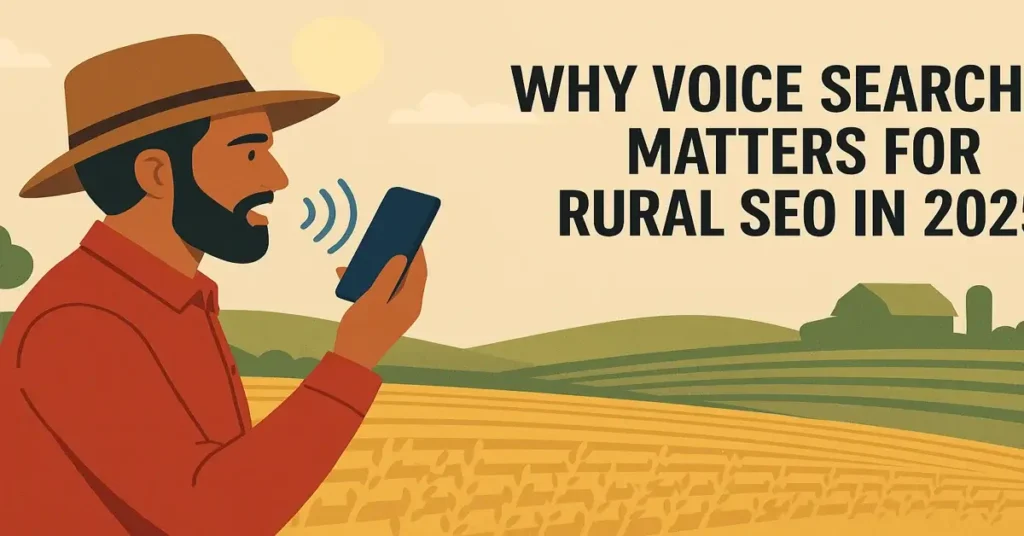
A growing number of people in rural areas are turning to voice search as their go-to method for finding information. Speaking into their phones feels quicker and more natural, especially when they’re multitasking, on the move, or not confident with typing in English.
Here’s why it matters now more than ever:
- Most voice searches in rural areas happen on mobile
- People are searching while doing everyday work, like farming or commuting
- Voice assistants are now much better at picking up local speech
- Rural users often want fast answers, not to scroll through pages
Many people overlook this, but it matters. Most users don’t search the way keyword tools predict. They ask questions the same way they’d speak to a neighbor or someone at the market.
Voice search gives local businesses a chance to stand out, even against big brands. If your content is helpful, clear, and local, it can show up first.
How Rural Voice Search is Different from Regular Search
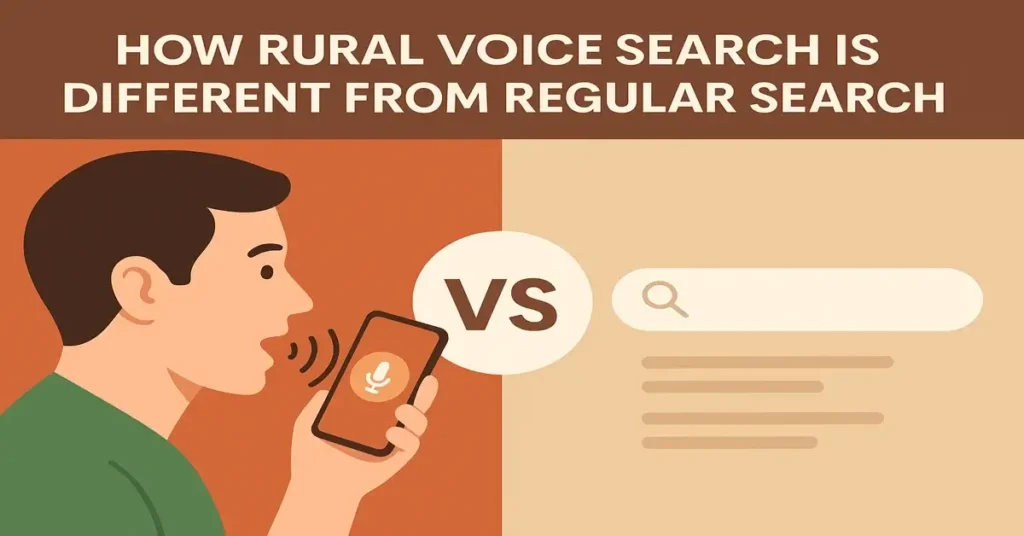
To optimize for voice, you need to understand how rural users actually speak and search. There are a few big differences from regular typed queries.
People speak in full questions
Instead of typing “solar fan los angeles”, they’ll say:
Which fan works best with solar panels in Bahawalpur
They add time and place
Rural users often include words like today, near me, open now, or the name of their village or town.
- Mobile repair shop open now in Burewala
- Best wheat seed for spring planting in Layyah
They use natural, everyday language
One key thing to understand is that people don’t search the way tools suggest. They speak naturally, asking questions just like they would in a regular conversation with someone nearby.
Many users don’t type at all
Voice search is often the only way some users interact with Google. If your content doesn’t speak their language, they’ll never find it.
7 Real Voice SEO Techniques That Work in Rural Areas
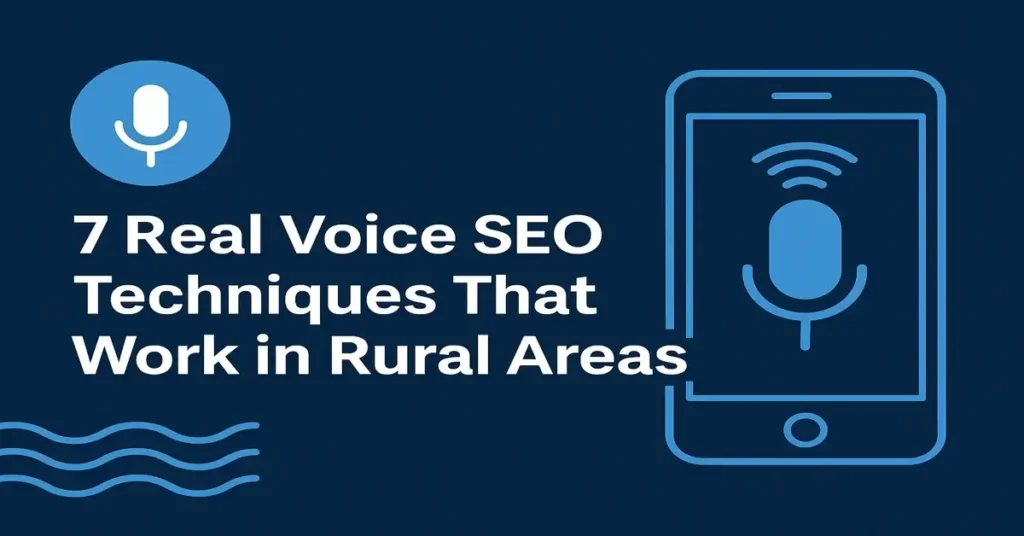
These are not theories. These are working strategies for voice search optimization for rural keywords focused on rural users.
Write Like People Talk
This is the most important voice SEO rule. Your content must sound natural. No keyword stuffing, no robotic sentences.
For example:
Not this: wheat pesticide los angeles
Write this instead: What is the best pesticide for wheat crops in los angelesBegin your questions using words such as what, how, where, or which, since that’s how most people naturally ask for information. That’s the way people usually speak when they’re looking for something.
Add FAQ Sections With Local Questions
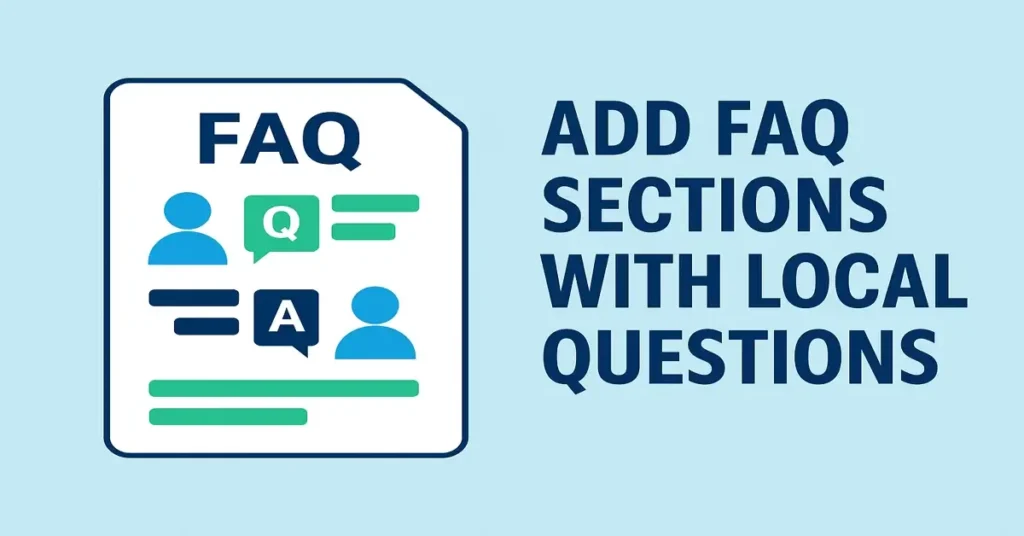
Make a list of questions your audience might ask and answer them clearly.
For example:
- What is the best cotton seed for los angeles
- Where can I get poultry medicine near NYC
- How do I fix my tube well motor in NYC etc.
Include your questions and answers using FAQ schema to help Google recognize and highlight them in voice results. If you need help setting it up, our guide walks you through each step clearly.
Make Sure Your Website Loads Fast on Mobile
Rural users often use older phones and slower internet. If your site takes more than a few seconds to load, they’ll leave and never come back.
To improve speed:
- Compress your images
- Use a mobile-friendly theme
- Avoid heavy popups and banners
- Enable caching
- Consider AMP for faster loading on weak connections
You can follow our full speed optimization guide for more tips.
Use Longer, More Specific Keywords
Short keywords don’t match voice searches. People speak in longer phrases.
For example:
Instead of: goat feed shop
Use: where can I buy goat feed in Toba Tek SinghUse free tools like AnswerThePublic or AlsoAsked to discover real questions people ask. Google’s own search results and “People also ask” boxes are also great for ideas.
Optimize Your Google Business Profile
If you have a local business, claim and fully set up your Google Business Profile. Add details like:
- Village or town name
- Real business hours
- What services you offer
- Real photos of your shop
- Frequently asked questions
Encourage satisfied customers to leave reviews that include your location and the type of service you offer. This gives Google more context about your business and who it serves.
Use Schema Markup to Help Google Understand Your Page
Schema markup tells Google exactly what your content covers, making it easier for your page to be selected as a voice search answer.
Use these types of schema:
- LocalBusiness
- FAQPage
- Article
- HowTo
Keep your content clear and well-structured, with no mistakes in the code. If you want to double-check your schema, you can use Google’s testing tool or follow the steps in our guide.
Structure Content to Win Featured Snippets
Many voice search results come from the answer box at the top of Google, known as Position Zero.
To increase your chances of showing there:
- Use questions as headings
- Answer right after the heading in one short paragraph
- Use bullet points for lists
- Keep it short, clear, and direct
When Google sees your answer is clear and structured, it’s more likely to read it out loud in response to a voice query.
Real Voice Search Examples from Rural Users
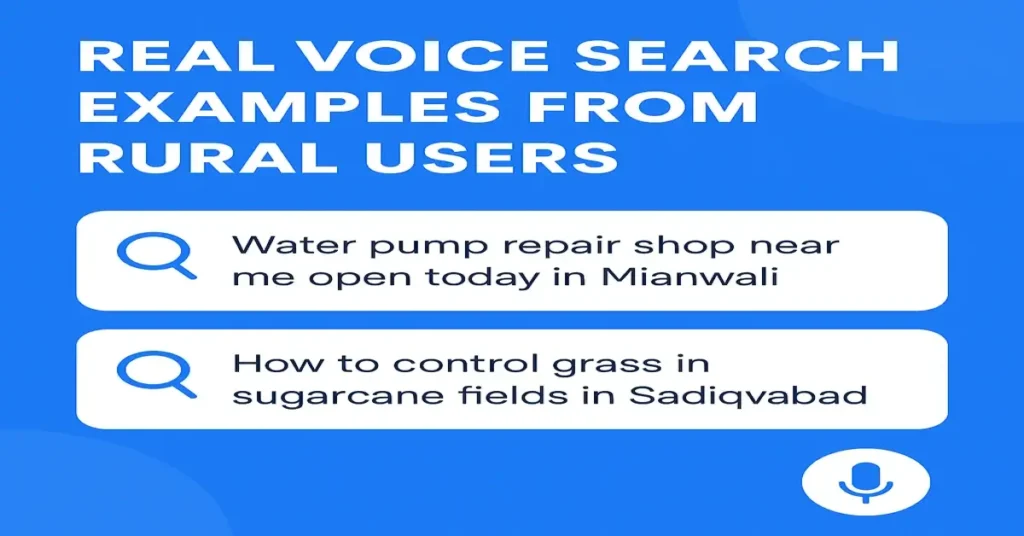
Here are some examples of voice search queries you might hear from people in small towns or villages:
- Where can I buy cheap solar batteries in Rajanpur
- Which is the best wheat seed for Faisalabad in summer
- Where can I find a water pump repair shop open today in Mianwali
- What’s the best way to control grass in sugarcane fields in Sadiqabad
If your content is written in the same way people speak, you make it easy for voice assistants to find and share your answer.
To make sure your site can even be crawled by search engines, you can check our website crawlability guide.
Tools to Help You Optimize for Voice and Rural SEO
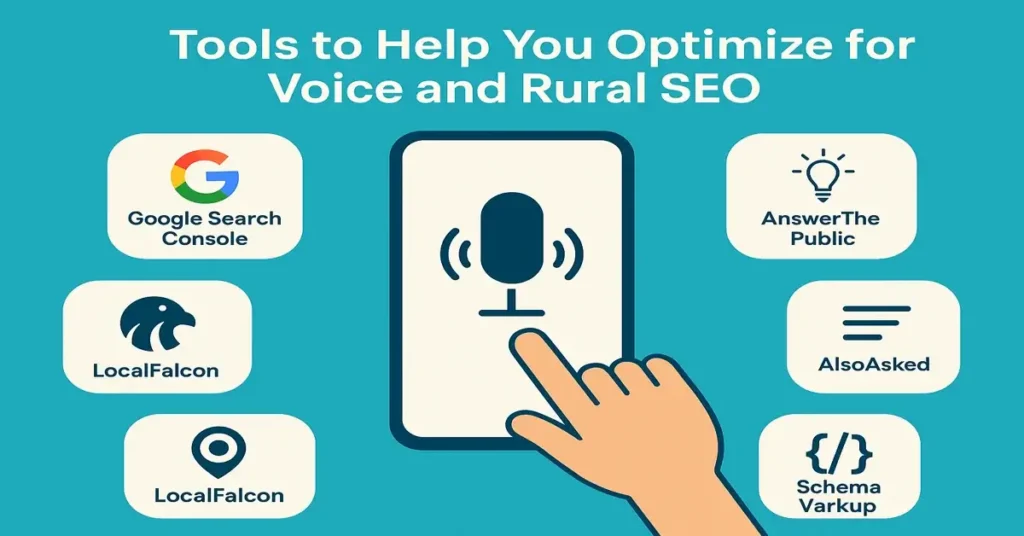
Here are five useful tools that can help you get results faster:
- Google Search Console
Shows which search terms people use to find your site
- AnswerThePublic
Gives you real questions people ask online
- AlsoAsked
Finds related questions based on your topic
- LocalFalcon
Tracks how your business ranks in specific locations
- Schema Markup Validator
Checks if your schema code is working correctly
Using these tools regularly will help you improve over time.
Mistakes to Avoid in Voice SEO
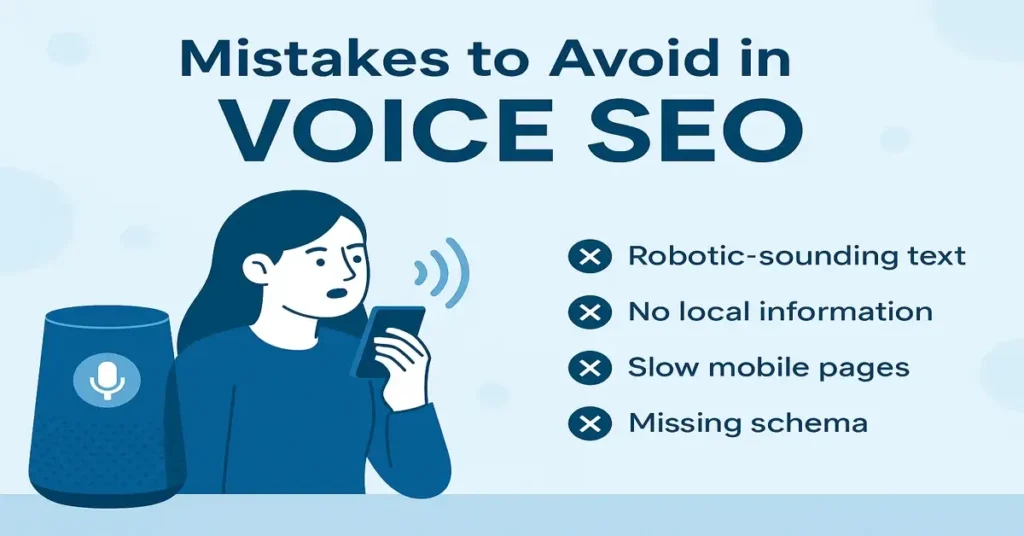
Here are some common mistakes that stop your site from ranking in voice results:
- Writing content that sounds robotic or unnatural
- Forgetting to include real place names
- Not optimizing for mobile or slow connections
- Skipping schema markup
- Ignoring FAQs or real-life questions
Avoiding these problems makes your content much more likely to succeed.
Final Thoughts
If you want to win with voice search in rural areas, don’t just focus on keywords. Focus on real questions, clear answers, and how people actually talk.
Include local place names where it makes sense. Focus on being genuinely helpful. Your website should load smoothly on mobile, and adding proper structure with schema helps Google better understand your content.
The best content for voice search isn’t clever or complex. It’s simple, clear, and helpful.
And when your content speaks the language of real people, both Google and your audience will trust you more.
FAQs
How is voice SEO different for rural websites?
It focuses more on natural language, local terms, slower internet speed, and mobile-friendly content. You need to think how real people talk, not how they type.
Can small businesses in villages benefit from voice search?
Yes. Voice search often returns just one result. If your content is clear and local, your business can show up first.
What content types work best for voice search?
Short answers, how-to guides, and question-based FAQs work really well. All should be written in simple language.
Is schema markup really needed for voice SEO?
Yes. Schema helps Google understand your content and improves your chances of being chosen as a voice result.







1 thought on “How to Do Voice Search Optimization for Rural Keywords”
Дешевое обслуживание электриков в Москве
Электрика заказать Москва [url=http://www.elektrik-master-msk.ru/]http://www.elektrik-master-msk.ru/[/url] .